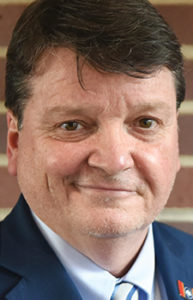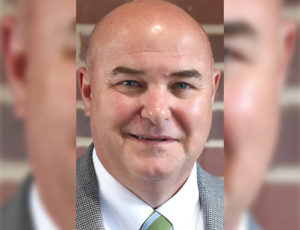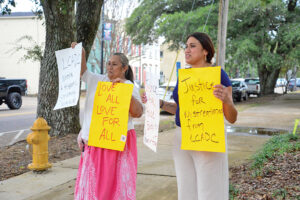Noisy neighbors and juke joints beware: Columbus has a new sound ordinance.
The city council unanimously approved citywide sound limits at its Nov. 16 meeting, adopting an ordinance closely modeled on one developed by Oxford. It will go into effect in a month.
The effort to nail down noise restrictions has been ongoing since April, when citizens near Patio 45 alleged they could hear loud, sometimes vulgar music coming from the eatery, which is located on Highway 45 near Holly Hills. Patio 45’s owner, Curtis Bordenave, said that the city’s existing ordinance did not specify permissible sound levels, and so he had no idea when he was or wasn’t breaking the law.
Last month the city demonstrated a decibel reader, to be used by the Columbus Police Department to get scientifically accurate readings when trouble makes itself heard. City Attorney Jeff Turnage presented a draft ordinance then, and it laid on the table for public review until Tuesday night when it was brought back up for a formal public hearing.
Construction activities that are noisy are allowed between 6:30 a.m. and 7 p.m., Monday through Saturday, Turnage explained. Vehicles are regulated both in terms of loud stereos and also being “out of repair” or “modified or operated” in ways that produce loud noises.
“We did not include mufflers because some manufacturers are making cars with mufflers that are loud (by design),” Turnage said. “A lot of cars, like Mustangs and Chargers, are manufactured so when you accelerate you get that roar. We don’t want to penalize somebody for using a factory-made product.”
“Outdoor entertainment” is regulated depending on whether it is in or next to a residential area, or if it is in the central business district or the historic district. The allowable level of noise is measured in decibels, both high-frequency (Dba) and low-frequency (Dbc):
■ In the historic or central business district, levels are set at 70 Dba and 80 Dbc between 10 a.m. and 1 a.m., and at 65/75 between 1 a.m. and 10 p.m.
■ Commercial district: 10 a.m. to 11 p.m. 70 Dba and 80 Dbc, and 65/75 between 11 p.m. and 10 a.m.
■ Residential area: 65 Dba and 75 Dbc between 10 a.m. and 10 p.m., and in violation if it’s clearly audible from the property line between 10 p.m. and 10 a.m.
■ Multi-unit dwellings: 45 Dba and 55 Dbc between 10 a.m. and 10 p.m., and 35/45 between 10 p.m. and 10 a.m.
City and Visit Columbus events are exempted from the ordinance, Turnage said.
According to the Centers for Disease Control and Prevention’s guide to hearing loss, a gas-powered lawn mower or leaf blower is in the 80-85 decibel range, while a motorcycle is around 95 decibels. A washing machine is around 70 decibels, while a “normal conversation” is about 60 decibels.
If someone complains, the readings will be taken from their property line.
Violation is a misdemeanor, with a fine of up to $1,000. As of right now, the city only has one decibel reader, and Columbus Police Department Investigator Max Branch is the only officer trained in its use.
The city will eventually buy more devices, Chief Fred Shelton said, and more officers will be trained to use them.
“We will go out to any business in town and test to help them establish (sound) levels,” said Public Information Officer Joe Dillon. “We’ll come out as many times as they want to test, at no cost.”
City returns to four-day work week
The city will return to a four-day work week, with offices closed on Friday, beginning Dec. 6. Mayor Keith Gaskin said the return to a four-day week is very popular with employees, and should save the city some money along the way.
The council, after talking about the idea for several months, pulled the trigger Tuesday night with a unanimous vote.

“It was in place for about 15 years or so, and then the council decided to move away from it and I think we’ve been away from it for a couple of years,” he said. “As I was working on the budget, every single department asked for this to come back.”
The city went back to five days following some concerns that citizens were having trouble accessing services, especially paying fines and getting reports from CPD, he said.
“We have looked at ways to move those things online, and to have secure drop boxes for people paying fines,” he said. “Accident reports will also be available online.”
“The city will also save money, because it will cut down on electric bills and fuel and those kinds of things,” he added.
Gaskin said the change will create a better work environment for city employees, and will also help with recruitment.
Updated hours of operation for city departments will be posted online and via social media, Gaskin said.
You can help your community
Quality, in-depth journalism is essential to a healthy community. The Dispatch brings you the most complete reporting and insightful commentary in the Golden Triangle, but we need your help to continue our efforts. In the past week, our reporters have posted 46 articles to cdispatch.com. Please consider subscribing to our website for only $2.30 per week to help support local journalism and our community.







